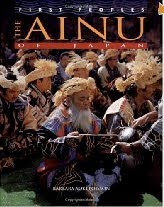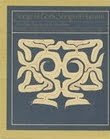
The question of the extent to which we can truly accept the values of another culture is one of the most pressing and the most difficult in today’s age of multiculturalism. The Ainu Iomante, or bear-sending ceremony, which is often described as cruel and barbaric, is one such topic of contention. Even though we might consider ourselves liberal-minded and accepting of cultural differences, it is difficult to remain open-minded when we are confronted with an activity that, on a personal level, we find objectionable.
Of course, the easiest option is not to think about whatever we find offensive, and this was the easy road taken by the Japanese government in prohibiting the Iomante for fifty years. It takes much more courage, however, to confront our prejudices and fears. This is the difficult road recently taken by many indigenous cultures. Silenced for many years by virtue of their minority status and negative feelings of cultural self-worth, indigenous peoples have recently become confident to tell their stories. Their willingness to engage with the mainstream, which requires a reciprocal effort of understanding from the general public, engenders recognition and respect for the subaltern.
Whether or not one can accept cultural practices such as the Iomante comes down to personal choice, but understanding the context of that practice is certainly important. The Ainu and the Bear: The Gift of the Cycle of Life aims to educate a wider public about the Iomante. Both the book’s author and translator acknowledge the difficulty of such a task, and accept the risk of offending readers. Author, Ryo Michico, identifies the book’s key issue as an attempt to understand the context of the Iomante from an Ainu perspective, rather than interpret the event by our own values: “I can only hope that this picture book will play a small part in helping people understand not only Ainu culture, but also any culture that differs from their own.”
Repositioning the context of the Iomante does not take away the debate over the animal cruelty involved, but it does create a space in which dialogue is possible. As a scholar of indigenous minorities, as a teacher and as a wanna-be open-minded person, it is my hope that this book stimulates conversation, opinion and debate rather than the laissez-faire apathy towards Ainu that, to my mind, is the surest sign of disrespect.
Melissa Kennedy is an Assistant Professor at the Nagoya University of Commerce and Business, Faculty of Foreign Languages and Asian Studies, and co-edits the NUCB Journal of Literature. Her special fields of research include: Indigenous and minority cultures, Asia-Pacific cultural globalization, Maori literature, and Ainu cultural rejuvenation. She is currently working on a book of interviews with well-known Ainu artists, activists, politicians and educators who are both proud of their cultural heritage and committed to keeping it alive and thriving.
The Ainu and the Bear~The Gift of the Cycle of Life can be ordered from the RIC Publications website










